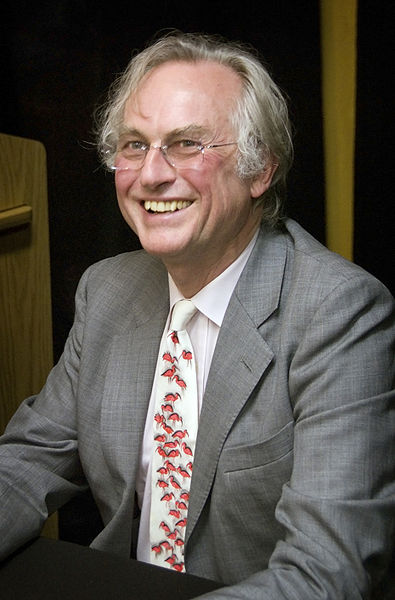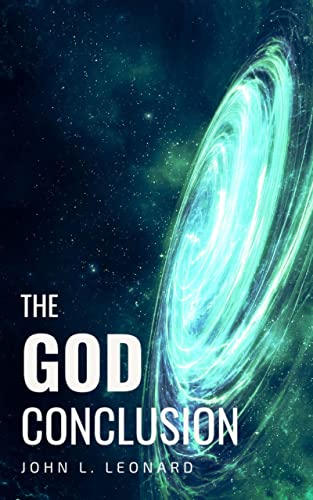Sin is doing something wrong in the mind of God. Richard Dawkins apparently doesn’t think sin exists. He once wrote, “The universe we observe has precisely the properties we should expect if there is, at bottom, no design, no purpose, no evil, no good, nothing but blind, pitiless indifference.”
Is that true?

Do good and evil not exist? Is sin only imaginary? What about stealing? What about having sex with someone else’s wife or husband? What about murder? What about rape?
Does wrong even exist in Dawkins’s world? I confess I am a tad confused, but I don’t think it’s my fault. I think it’s because Richard Dawkins tends to talk out of both sides of his mouth.
Richard is famous for making sensational claims and writing books with provocative titles like The God Delusion. He also has the reputation for having this splendid scientific mind that he allegedly displayed while writing books such as The Selfish Gene, The Blind Watchmaker, and The Greatest Show on Earth: The Evidence for Evolution, in which he wrote, “Evolution is a fact. Beyond reasonable doubt, beyond serious doubt, beyond sane, informed, intelligent doubt, beyond doubt evolution is a fact. The evidence for evolution is at least as strong as the evidence for the Holocaust, even allowing for eyewitnesses to the Holocaust. It is the plain truth that we are cousins of chimpanzee, somewhat more distant cousins of monkey, more distant cousins still of aardvarks and manatees, yet more distant cousins of bananas and turnips…continue the list as long as desired.”
According to Dawkins (paraphrased) evolution describes a purely undirected process of change, where plants and animals can literally share a common ancestor if allowed to have enough sex over a long enough period of time. There is no God in control of everything. Time is the god of evolution theory–in theory, as long as there is enough Time, anything and everything can happen. Fish become people.
The funny thing is, if you listen to Richard Dawkins long enough, he begins to make comments that completely conflict with his preferred and professed worldview. For example, he also has said, “I’m fascinated by the idea that genetics is digital. A gene is a long sequence of coded letters, like computer information. Modern biology is becoming very much a branch of information technology.”
Now I happen to strongly agree with this last claim that genes are sequences of coded letters, very much like computer information although it is more than twice as complex, but I strongly disagree with his first two quotes. In the binary world of computers, information can be stored and retrieved in digital form in a fixed-length sequence of zeroes and ones called bytes. The only rules that apply to spelling information in the computer is that any “bit” of information (literally the term) must either be a zero or a one, and the preceding and following bits of information may also be a zero or a one, but those are the only rules that apply to binary coding.
Every sequence of eight digits represents a different value or symbol in what is known as the ASCII (American Standard Code for Information Interchange) table. For example, when you press the number seven key on your keyboard, the computer doesn’t understand that symbol. Nor does it notify the operating system that the number seven key was just typed. In fact, what we think of as the digital number seven, in ASCII, is represented by the byte 00000111. But what the computer understands is the character value for seven was just typed on the keyboard, and that ASCII code is 00110111.

How does this information relate to users in the real world? Let’s say you are using an Excel spreadsheet and wish to enter a dollar amount and you type on the keyboard $4.32. What does the computer understand? How does it internally store and remember those numbers and symbols?
Pressing those five keys on the keyboard generates the following ASCII sequence:
00100100 00110100 00101110 00110011 00110010
[$] [4] [.] [3] [2]
The ASCII table can be found online. Check my work and verify the information that I just provided is both accurate and true. Don’t simply trust me. Please confirm that I know what I’m talking about.
I do not claim to be current with the latest developments in computing but I am confident that I’ve forgotten more than what the vast majority of people who use computers every day know about them. I am also not an expert in genetics or DNA, but I know how to comprehend what I read and I know enough about the subject to know DNA is infinitely more complex than the binary language of computers and the rules are much stricter.
Instead of a zero or a one, you have four possible values: adenine, thymine, cytosine, or guanine. In binary code any zero or one can be followed by either a zero or a one, in DNA adenine can only pair with thymine and cytosine only pairs with guanine. Also, due to the double helix structure of DNA, the same message can be read forward or backward by changing strands and changing direction, sort of like a palindrome only twice as complex.
According to Cornell genetics professor John Sanford, “Most DNA sequences are poly-functional and so must also be poly-constrained. This means that DNA sequences have meanings on several different levels (poly-functional) and each level of meaning limits possible future change (poly-constrained.) For example, imagine a sentence which has a very specific message in its normal form but with an equally coherent message when read backwards. Now let’s suppose it also has a third message when reading every other letter, and a fourth message when a simple encryption program is used to translate it. Such a message would be poly-functional and poly-constrained.”
So, does DNA sound like the product of blind, pitiless indifference?
We know that people commit murder. We steal, we lie, we commit adultery. Humans have committed atrocities both to animals and their fellow man. Since Dawkins mentioned the Holocaust, would anyone argue that the Holocaust wasn’t evil? Or, must we say the Holocaust was perpetrated by a horde of evil people? Perhaps like beauty, evil only exists in the eye of the beholder, but to this beholder, the Holocaust was purely evil. Nothing good can ever be said about the pitiless, systematic murder of six million innocent people. Or the forced starvation of twenty million more in the Holomodor.
People like Richard Dawkins seem to believe that if God existed then evil would not exist. No matter what Mr. Dawkins thinks or says, evil must exist if humans are to have free will and be able to choose good or evil. If incontrovertible proof of God existed, man would have no choice except to believe in God, and we would in essence become slaves to our belief. If Richard Dawkins is right about God, he is wrong to call DNA “information” because undirected processes do not produce useful information.
If DNA wasn’t purposely organized it isn’t information. It could only be raw data.
Except it isn’t raw data. DNA is information.
And evil exists.

Speak Your Mind